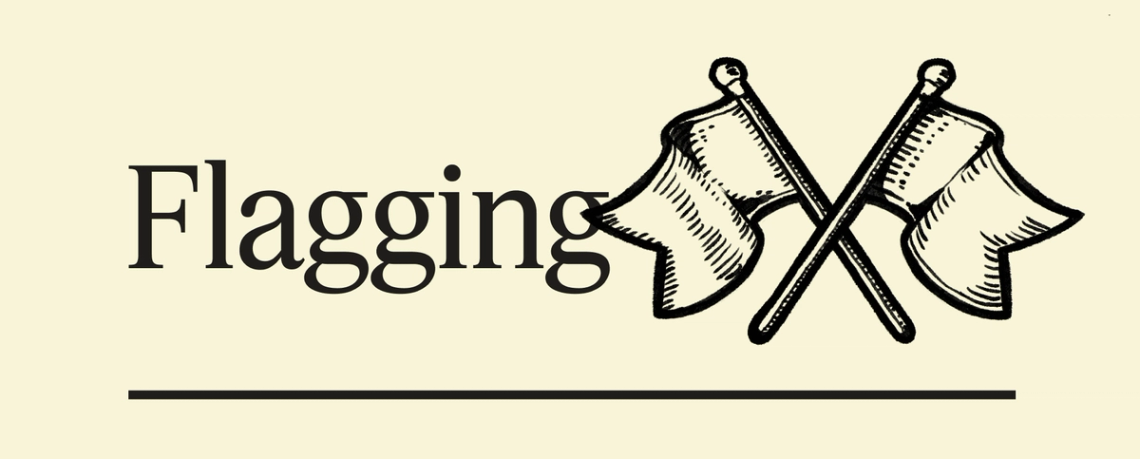| | Humanitarian groups suspend Gaza aid, China’s influence grows in Southeast Asia, and NATO considers ͏ ͏ ͏ ͏ ͏ ͏ |
The World Today |  - China’s growing influence
- Groups suspend Gaza aid
- Trump-proofing Ukraine
- Good year for billionaires
- Figuring out moon time
- AI’s internet limits
- EVs replacing petrol cars
- EU’s farming subsidies
- Swiss sacrifice free skiing
- Wine corks vs. screw tops
 A Broadway show documents Vladimir Putin’s rise to power, and one global region sees a marked decrease in happiness. |
|
SE Asia prefers China over US |
 Southeast Asian elites are increasingly siding with China over the U.S. For the first time, a narrow majority of private- and public-sector decision makers said in a survey that they would align with Beijing over Washington if they had to make a choice, reflecting China’s growing influence in the region. China has poured billions into infrastructure projects and expanded security partnerships, even as it spars with some countries over maritime rights in the South China Sea. The shifts come as U.S.-China relations are warming: U.S. President Joe Biden and Chinese leader Xi Jinping had a “candid” conversation for nearly two hours Tuesday, covering topics including North Korea’s nuclear capabilities and Taiwan. |
|
Aid groups suspend Gaza deliveries |
 REUTERS/Ahmed Zakot REUTERS/Ahmed ZakotSeveral humanitarian groups paused food deliveries to Gaza on Tuesday, citing safety concerns after an Israeli airstrike killed seven aid workers from the World Central Kitchen. Israeli Prime Minister Benjamin Netanyahu apologized, saying the workers — who were traveling in vehicles marked with the group’s logo — were “unintentionally” hit. Gaza is on the brink of famine, and Israel is facing mounting criticism for hampering aid efforts. Countries have resorted to airdropping supplies. A reporter for The Independent who embedded on a Jordanian airdrop plane wrote that as she flew over the ruins of Gaza, “the 16 wooden pallets loaded with boxes of food – and topped by parachutes … seem woefully insufficient.” |
|
NATO mulls ‘Trump-proof’ aid |
 REUTERS/Alyssa Pointer REUTERS/Alyssa PointerNATO is considering a $100 billion “Trump-proof” aid package for Ukraine. The plan set to be discussed Wednesday could allow the alliance to manage the supply of lethal military aid to Ukraine, according to the Financial Times. As Semafor previously reported, NATO wants to take over U.S.-led military aid efforts for Ukraine over fears that a Donald Trump presidency could dilute Washington’s commitments to the alliance and Kyiv. While Trump is unlikely to pull out of NATO, regardless of “whatever threats he makes,” Eurasia Group’s Ian Bremmer wrote, Europe should be worried about his will to defend allies under attack. |
|
The world’s super-rich are ‘thriving’ |
 REUTERS/Kim Kyung-Hoon REUTERS/Kim Kyung-Hoon The world’s richest people got richer last year. According to Forbes’ annual report, an additional 141 people joined the billionaire class this year, and their collective wealth increased by $2 trillion to total $14.2 trillion, more than the GDP of every country except the U.S. and China. “Even during times of financial uncertainty for many, the super-rich continue to thrive,” Forbes’ wealth editor said. More than half of the new entrants are self-made. New billionaires include global superstar Taylor Swift; French fashion designer Christian Louboutin; Renuka Jagtiani, the CEO of Dubai-based e-commerce conglomerate Landmark Group; and Selçuk Bayraktar, the chair of a Turkish military drone manufacturer and the son-in-law of President Recep Tayyip Erdoğan. |
|
NASA to figure out moon time |
 NASA/Handout via REUTERS NASA/Handout via REUTERS The White House wants NASA to figure out what time it is in space. As public and private space exploration ramps up, the U.S. space agency has been tasked with establishing a unified standard of time for the moon and other planets, Reuters reported. An Earth-based clock wouldn’t work for the moon because of the differing gravitational force, experts say, underscoring the need for an international agreement on how to handle lunar time. The U.S. hopes to establish a base on the moon in the coming years that could lead to future scientific missions on Mars. Japan, China, and India, are also shooting for the moon in the growing space race. |
|
AI companies are running out of data |
 Photo Illustration by Rafael Henrique/SOPA Images/LightRocket via Getty Images Photo Illustration by Rafael Henrique/SOPA Images/LightRocket via Getty ImagesThe internet is proving to be too limited for training artificial intelligence models. Bots like ChatGPT learn from billions of pieces of text data scraped from books and sites like Wikipedia, but the supply of publicly available information will dry up in the next few years, researchers said. That’s forced some companies to turn to AI-generated “synthetic data,” The Wall Street Journal reported. But some experts have warned that this would essentially equate to digital “inbreeding” that could lead models to collapse and produce nonsense. ChatGPT maker OpenAI is reportedly looking into alternatives, including using transcriptions of public YouTube videos. “The biggest uncertainty,” one researcher said, “is what breakthroughs you’ll see.” |
|
More EVs on Norway’s streets |
 Norway could become the world’s first country to have more electric than petrol cars on its roads, as soon as the end of this year. Nine out of 10 cars sold in Norway at the start of the year have been EVs, Reuters reported. The country’s oil and gas wealth has helped fund incentives to end the sale of petrol and diesel cars by 2025. “This time next year there will be more BEVs on the road than pure-petrol cars, and probably before the end of this year,” one climate researcher said. Meanwhile, Tesla, once the world’s most dominant EV player, saw a big drop in its global deliveries, as it struggles with slowing consumer demand and competition from Chinese EV startups. |
|
 Jared Bernstein, Chair, White House Council of Economic Advisors; Steve Case, CEO, Revolution; Kathy Grillo, SVP, Public Policy and Government Affairs, Verizon, Joe Dominguez, CEO, Constellation Energy; Kevin Scott, CTO, Microsoft and Brandon Wales, Executive Director, CISA will join the Digital Infrastructure session at the 2024 World Economy Summit to discuss the critical role of connectivity in economic development, how AI is changing digital infrastructure, and the key investments needed to gain a competitive edge in the global landscape. April 17 | 9 a.m.-12 p.m. ET | Washington, D.C. |
|
Most EU subsidies go to animal farming |
 REUTERS/Yves Herman REUTERS/Yves HermanMore than 80% of the European Union’s farming subsidies go to carbon-intensive animal farming, in conflict with the bloc’s climate targets, a study suggested. The EU’s common agriculture policy disperses more than $200 billion in annual subsidies, more than half of which went directly to livestock farmers and efforts to support animal products over plant-based alternatives, researchers found. The EU is keen to promote reforestation and other climate-friendly land-use changes in its goal to make Europe the first climate-neutral continent by 2050, but doing so will be difficult “if you’re setting up the economics such that you’re incentivizing the most damaging products,” one author told Phys.org. |
|
Swiss ministers sacrifice free skiing |
 FABRICE COFFRINI/AFP via Getty Images FABRICE COFFRINI/AFP via Getty ImagesSwiss federal ministers are giving up their free annual ski passes worth around $4,000. Switzerland recently voted in favor of a referendum for greater social welfare that was opposed by the majority right-wing coalition government, which warned against the roughly $5 billion cost. Social media posts noted that government officials received perks like $200,000 pensions and, notably, free ski lift passes for Swiss slopes every year. In 2022, one minister defended the passes as “a working tool,” saying, “I have a great many meetings with business leaders and mayors on the slopes.” This did not wash, Le Monde’s Geneva correspondent reported, and eight senior government figures have given them up. |
|
 Christiane Bosch/picture alliance via Getty Images Christiane Bosch/picture alliance via Getty ImagesWinemakers are battling over whether corks or screw caps are better for the environment. The fight used to be over which best preserved wine quality: Screws won decisively, as cork can allow oxygen into the bottle. But cork forests are carbon sinks, while screw caps are aluminum and theoretically recyclable. Producers for both have commissioned studies and reports to prove that their stoppage method is the greenest. “I am convinced that screwcaps are as good for wine as a perfect cork,” the wine critic Jancis Robinson wrote in the Financial Times, “but can’t work out which is better for the planet.” |
|
 April 3: - A Ugandan court is set to issue a verdict on a petition seeking to annul the country’s Anti-Homosexuality Act.
- Foreign ministers from Vietnam, Timor-Leste, and Lao, visit China for diplomatic talks.
- The first giant panda born in South Korea, Fu Bao, departs for China, in accordance with China’s panda diplomacy rules that say the animals must be returned before turning 4.
|
|
 The 2024 Gallup World Happiness report revealed subtle shifts in how satisfied people are with their lives in different parts of the world. Much of Europe as well as East Asia saw a rise in “happiness” in the last 10 years, while South Asia reported a marked drop in life satisfaction across age groups and was the unhappiest region in the 2024 report. Within South Asia, middle-aged people, especially males, were least happy. The study asks people in over 140 countries to rate their lives on a scale of zero to 10. |
|
 Marc Brenner Marc BrennerA new play on Broadway dramatizes Vladimir Putin’s rise to power. Patriots, written by the creator of Netflix’s The Crown, dives into “the backstory (and backstabbing) of the real-life people and events” that shaped a pivotal moment in Russian history after the Soviet Union’s fall in 1991, The New York Theatre Guide wrote. It documents how an unknown Putin became a household name with the help of his friend-turned-foe and billionaire oligarch Boris Berezovsky. A New York Times critic called the London production of the play “gripping” and “coolly unnerving.” It’s a tough time for Broadway: ticket prices are higher and sales lower. |
|
| |